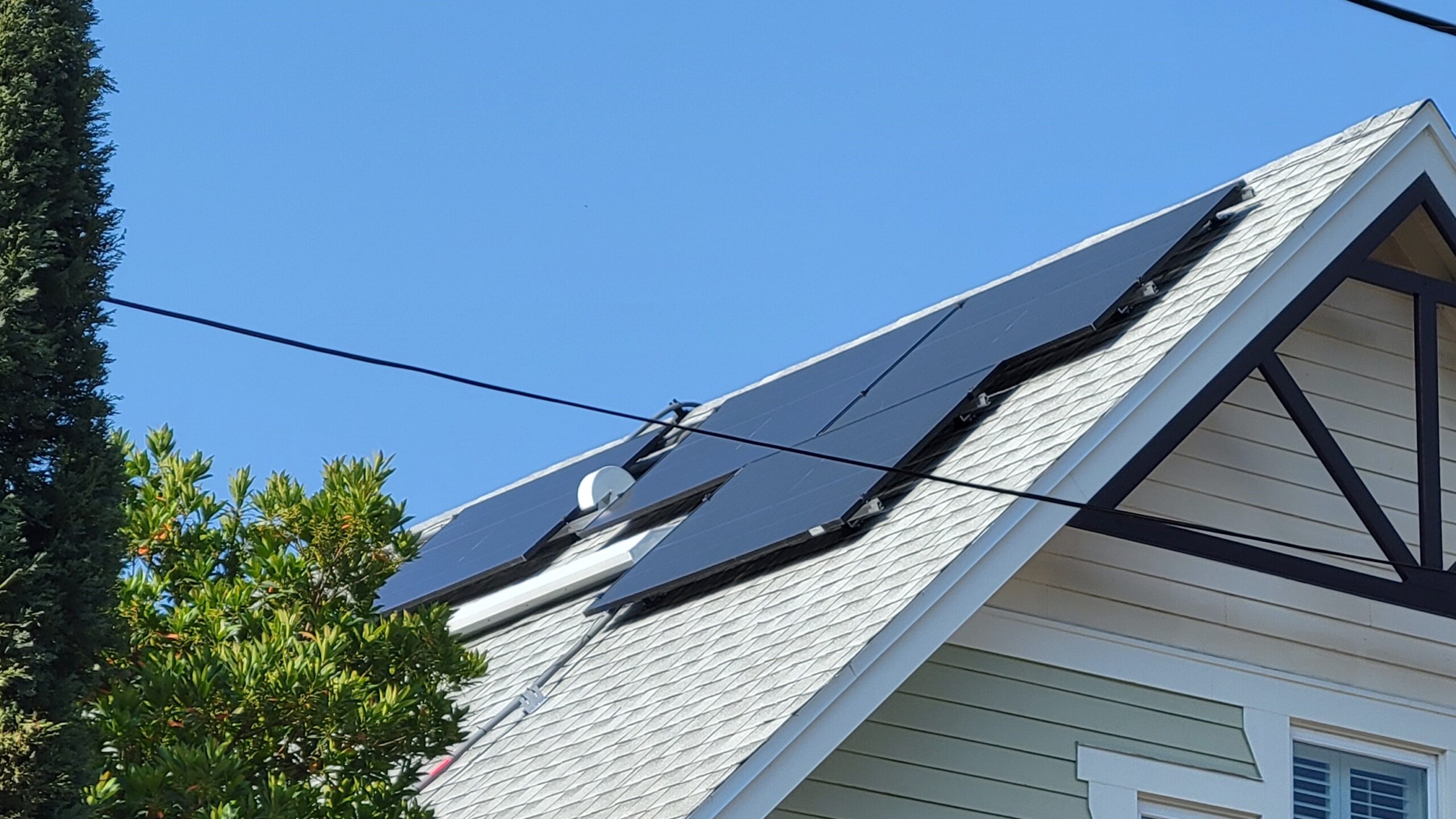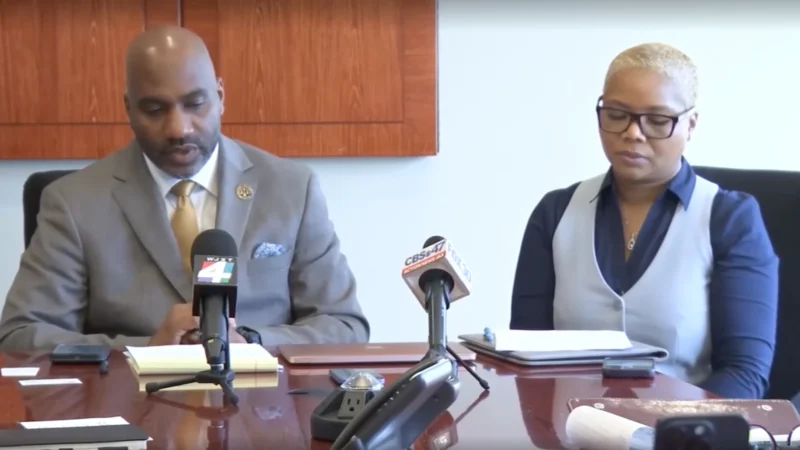David Byers stands before the solar panels on the roof of his Springfield home, happy that he got them last year.
But even as his JEA bill went from an average of $200 a month to about $70, he admits that the problems he faced as a Tampa company installed them shaded the sunny results he now sees.
The good news: He can probably pay off the $15,000 cost of installation soon with the money he is saving on his monthly bill. But his solar panel company almost went bankrupt as his installation was occurring, and it couldn’t get crews to his home sometimes to install the rooftop panels.
“The main problem was that the contractor turned out not to be particularly reliable,” Byers said. “So they did eventually get the job done, but it took a lot of phone calls and a long time basically before it was actually functional.”
JEA now has a program that could help people like Byers avoid problems when it comes to selecting a solar panel company and getting the job done right. The week-old Solar Concierge program makes JEA the “trusted adviser” for people interested in rooftop solar systems, said Philip Williams, JEA’s customer program manager.
“We can give customers resources based on a vetted contractor, a marketplace where they can get viable bids from those contractors who have been vetted,” said Williams, who joined Byers at his home Thursday. “And there are JEA’s solar advisers, who are knowledgeable of the programs, knowledgeable about the return on investments, and pretty much giving the customer a bevy of resources so they have an educated source that will guide them on their decision making.”

Solar power is getting a solid foothold in the Jacksonville area. More than 6,000 customers in JEA’s Jacksonville/St. Johns County service area have adopted it to power their homes and businesses.
That is a 150% increase in the past three years, Williams said. Expecting continuing popularity of solar cells in the Sunshine State, plus solar battery storage installations, JEA started its Solar Concierge Program on April 15.
No one has joined the program yet, but there’s been plenty of inquiries so far, Williams said.
“We have a goal of implementing renewables in our portfolio, so we understand from an industry standpoint,” Williams said. “We are also moving toward those renewable energy sources. So we want to make sure that the customers are making the best decision, as the JEA is making the best decision. We are community-focused, community-owned, so we want to take them along the journey we are on as well.”
Along with the popularity comes some problems, Florida Attorney General Ashley Moody said in Jacksonville recently.
Speaking a month ago at a news conference with the Better Business Bureau, she announced a new guide — Scams at a Glance: The Dark Side of Solar — to help consumers navigate solar investments safely. The new resource cames months after she filed legal actions against three solar companies for deceptive and unfair trade practices.
“Home solar energy systems can present utility savings opportunities,” Moody said. “But bad actors may use the enticement of big savings to secure large down payments with no intention of ever completing the solar installation process. Solar scams cost Florida consumers thousands of dollars.”
Moody’s advice includes making sure potential customers get quotes from several reputable solar companies, then compare them. Be cautious of companies requesting large upfront payments or deposits, and be aware that not every customer will be eligible for rebates or utility incentives.
Williams is aware of issues that people have before, during or after installation. That includes shady contractors, as well as workers who damage roofs when installing the panels and wiring. There can be other issues with homeowners insurance covering the panels, which is why the new program will make people aware of issues and how they can be avoided.
“We have seen an uptick in insurance companies having more requirements from the average customers who have solar on their homes,” Williams said. “So we want to make sure we put the information on the forefront of the decision so the customers are not surprised by it on the back end.”
Byers said he didn’t have any issues with roof damage, but he has heard of other solar panel owners who did. He did get a 30% government tax refund on his solar system, which brought its cost down as he paid for it upfront. He says probably would have used the JEA Solar Concierge program if it had been around last year.
“JEA would do a lot of the background work that maybe we were not equipped to do,” Byers said. “We basically just looked at online reviews, but JEA could go more in depth to make sure the contractor is reliable, does answer phone calls and can do the job properly.”
JEA’s new program offers a Marketplace Calculator tool to help compare installation costs from verified solar contractors. The calculator also helps estimate energy savings and connects the homeowners with an energy adviser to help manage the project.
The program also offers a Solar Unified Network — or SUN — of vetted solar contractors who meet business license and insurance requirements, have satisfactory ratings with the Better Business Bureau, and have been trained by JEA on proper solar-to-residence connections.
Incidentally, the U.S. Environmental Protection Agency just announced a $156 million program that will offer financial help for about 10,000 single-family households in Florida to install rooftop solar. Low-income households could be subsidized 80% to 100%, and those with moderate incomes 60% to 80%.
The money is included in a $7 billion program that is part of the federal Greenhouse Gas Reduction Fund to reduce carbon pollution in the U.S. to combat climate change.







